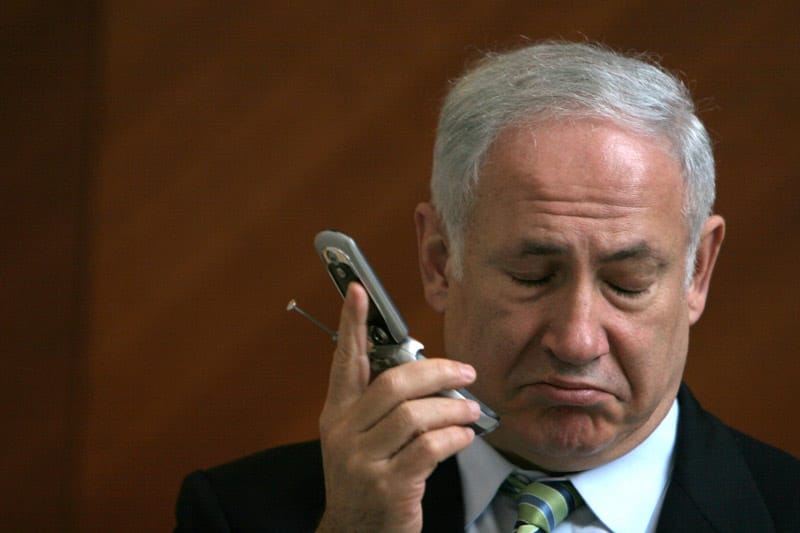Continued from November 7...
Removal of Israeli judicial independence
One major policy spin-off resulting from the formation of the most right-wing administration in Israeli history was the removal of the relative independence being enjoyed by the country’s judiciary. For many years, Israel has enjoyed the appellation as “the most enviable democracy in the middle east”. However, all that appeared to be changing with Netanyahu-led far right government pushing for the overhaul of judicial independence. The whole policy centres on the parliament having the power to review and in some cases overturn judgement of the nation’s Supreme Court anytime they consider such judgement not to be “reasonable or in the interest of the state”.
For weeks and months, the Israeli society was polarised along partisanship of ultra-conservationist supporters who supported the move and already perceived the nation’s judiciary as being too powerful against the civil society organisations, left-wing ideological supporters, media and a large strata of Israeli society who feared that it’s a matter of time for an all powerful-parliament assembly (Knesset) to start abusing such power at the slightest opportunity on any judgment delivered by the Supreme Court. There were others who have accused Bibi of using the instrumentality of law to pursue selfish interest. Those with this line of thought argued that such a legislative power is capable of flipping the court’s verdict ahead of a yet-to-be-determined corruption case hanging on Netanyahu’s neck.
Not a few observers had also rated the continuous protests against the bill (which was eventually passed into law on July 24, 2023) as being one of the most divisive developments in Israeli history. The disagreement that ensued not only dampened the people’s faith in the governance and state institutions, but also led to withdrawal of services by thousands of army reservists who said they will not be available to be called up for services, among other various pushback by those who oppose the bill. The Hamas October 7 attack was thus launched against an Israeli society that was heavily polarised, with morale of its army at the lowest ebb courtesy the “judicial law of reasonableness” spearheaded by Netanyahu and his far-right cohort. This much was confirmed by Bibi himself in one of his recent pressers, making a vague interlink between “reservists’ insubordination” as a result of the judicial review protest and the Hamas attack on October 7.
Ignoring the Palestinians agitation and the call for two-state solution
In the last decade or thereabout, the discourse for the implementation of two-state solution so as to curb incessant violence between Israelis and Palestinians, had taken the back seat. No thanks to the germination of the ideology of a single Israeli state that has an oversight rights on Palestinian territory. Much of this wild thought had been propagated by the likes of Netanyahu and others with right-wing nationalism fervour.
And unlike in the past administrations (including those led by Bibi himself), members of the current administration have done a lot to constantly heat up the polity and jeopardise every available opportunities that can resume diplomatic engagements on two-state solution. From incendiary statements like ‘Palestinians should be wiped off the earth’, to the arming of settlers who take the killings and chasing of Palestinians out of their homes and villages as their past times in the West Bank, the constant granting of access to the Jews whose visit to Al-Aqsa (Temple Mount) compound as against the earlier agreement to respect the sanctity of the place, among other provocative behaviours, among others have continuously undermined the actualization and viability of a two-state. Most of these acts usually spearheaded by the likes of Ben-Gvir and Smotrich, under the watchful eyes of Netanyahu, whose refusal to call these cabinet members to order had only been aggravating the situation until the burst up of October 7.
READ ALSO
Eleventh Hour To Grandest Legacy, Five Banana Peels that Got Netanyahu Crashing (1)
Day 7 of Israel-Palestinian War: What You Need To Know
Sanwo-Olu Okays N3.75bn For Perfume, Rechargeable Fans – Report
We’ve No Money To Fire Peseiro, Says NFF
Polaris Bank Deepens Promotion Of SMEs In Nigeria, Sponsors 2023 Year End Fashion Souk With Eventful
Wrong Assumption that Arab-Israeli normalisation agreement will bury two-state clamour
Rather than pursuing the viability of a two-state solution, Netanyahu had dedicated most of his time to striking normalisation agreements with a number of Muslim/Arab countries as explained earlier. Within the Middle East, Israel had struck earlier peace agreements with Egypt and Jordan. But with the arrival of former US President Donald Trump on the horizon, his hawkish governance approach, spearheaded by his son-in-law, Jared Kushner, the idea of seeking normalisation with friendly Arab neighbours gained better traction resulting in UAE, Bahrain signing normalisation agreement with Israel on September 15, 2020 under what Trump proudly dub: “deal of the century”. Morocco and Sudan were to later follow the same route.
Yet, Netanyahu and his lot were not satisfied. Since his return to the premiership seat 1n December 2022, he has consistently pushed for how to co-opt Saudi Arabia, supposedly the most influential leader of the Muslim/Arab world. In fairness to Bibi, a normalisation agreement with Saudi Arabia would have been an enchilada of his over 16-years political leadership of Israel. An almost fait accompli would be the likelihood of many other Arab and Islamic countries (especially those dependent on Saudi guardianship) to summon the courage of normalising relationship with Israel. Such spin-off had happened in the past. During the diplomatic spat that ensued between Saudi and Iran in 2016 with Iranian protesters attacking Saudi’s embassy in Tehran in response to the kingdom’s execution of a Shiite cleric, Nimr Bakhri Al-Nimr, the likes of Bahrain, Sudan and Djibouti swiftly followed suit in cutting diplomatic relationship, while UAE also downgraded its relationship with Iran. So, Netanyahu is aiming to use one stone to kill many birds with Saudi normalisation effort.
And like it was explained earlier, Netanyahu consistently pursues its quest with Saudi agreement with the conviction that when this is sorted, the Palestinians can go to hell. In fact, he was quoted on a number of occasions saying the Palestinians should not have a say on whatever happens between Israel and Saudi Arabia normalisation arrangement. He was also quoted at different times that unlike what was being told to people, the idea of a Palestinian state is hardly discussed behind the close door (that’s when Israel, US and Saudi officials meet to deliberate on the plan). Such provocative statements and you-can-go-to-hell attitude became recipe for groundswell of anger and not a few analysts and observer had mentioned the planned normalisation with Saudi Arabia as one of the possible reasons for the grand attack launched by Hamas in October 7.
Never taking responsibility for things that go wrong
Whereas not a few Israelis have an axe to grind with Netanyahu, his recent indiscretion, passing the buck of responsibility for the October 7 attack to poor intelligence from the security agents was probably the last straw that has broken the camel’s back. That attempt to pass the buck of blame to the security operatives without accepting a part of it despite being the Prime Minister demonstrates to many once again, that the maverick Bibi was ready to sacrifice others in a desperate bid to survive the onslaught that may soon be launched against him. After the controversial tweet on his verified X (formerly twitter) handle that states: “At no time and no stage was a warning given to Prime Minister Netanyahu regarding war intentions of Hamas. On the contrary, all security officials, including the head of army intelligence and the head of the Shin Bet, estimated that Hamas was deterred and interested in an arrangement”, the outrage that greeted the post forced Bibi to delete and apologise. Yet, in recent interviews, the Israeli Prime Minister has not given up in extricating himself of any blame, though he is being more circumspect in his choice of words.
Whereas the idea of passing the buck while doing everything to maintain the image of a rugged leader always in charge of everything around him may have worked well for Bibi previously, that playbook may not be all-potent this time. The reality of losing over 1200 people in one fell swoop and another 250 in captivity still stirs anger among the Israeli populace and accusing fingers are being directed at Netanyahu whom many believed the buck stops on his table. As it stands, a groundswell of opposition is mounting; opinion polls after polls keep revealing that majority no longer trust his leadership and are calling for his ouster.
On the streets, the momentum for his departure is also building with protests being held here and there including those around his office. Opinion moulders including retired military officers and a growing number of politicians across political spectrum are also calling for his replacement. Yair Lapid, the immediate-past Prime Minister and opposition leader is the latest to ask Bibi to vacate his seat as his leadership is no longer tenable. There are those already striking a similarity between Netanyahu political fate and that of the former Israeli Prime Minister, Golder Meir who was in power when the Yom Kippur war broke out 50 years ago, leading to massive loss of lives among the populace and its army. At the completion of the war, Meir was forced out of office and Yitzhak Rabin took over.
Will the mounting pressure also consume Netanyahu? Well, it is still very dicey. Known as a cat with nine lives, Bibi has been shuffling his cards, with his joker being kept close to his heart. Keen observers had pointed that the idea of refusing to take responsibility for disaster of October 7 attacks was a strategy to keep his base enliven. Yet that was not all. Amichai Eliyahu, Israeli Heritage Minister made a faux pax recently, when he called for the use of nuclear weapon on Gaza. Netanyahu swiftly suspended him amid global outrage that greeted such insensitive comment of a far-right politician. Bibi was to move a little more by outrightly sacking him, when Amichai’s party leader, Ben Givr was said to have warned of consequences. Netanyahu thus backed off. For not wanting to upset his base, Bibi understands that the days ahead would be tough and sticky, especially with the likelihood of a commission of enquiries to be set up to dissect what actually went wrong before the historic disaster enforced on the state of Israel by Hamas. He is placing his final bet on the numerous support groups of the right-wing, hoping that when the push comes to shove, they would be there to ward off possible evils over his head.
Nonetheless, Bibi knows that his chances of survival are getting slimmer by the day and his once-glittering ego of the “protector of the state of Israel” has been badly bruised. And even if he survives, he may no longer enjoy his demi-god status among the Israeli populace. In a recent sombre reflection, Bibi was quoted as saying that after all said and done, everyone will have moment to give account of his or her role relating to October 7 attack, including himself. That was perhaps the starkest reality that the days after tomorrow are pregnant. The nature of the child that would be birthed is what Bibi and his hirelings do not know. But as it stands today, there appears to be no smile in the sky.
CONCLUDED





